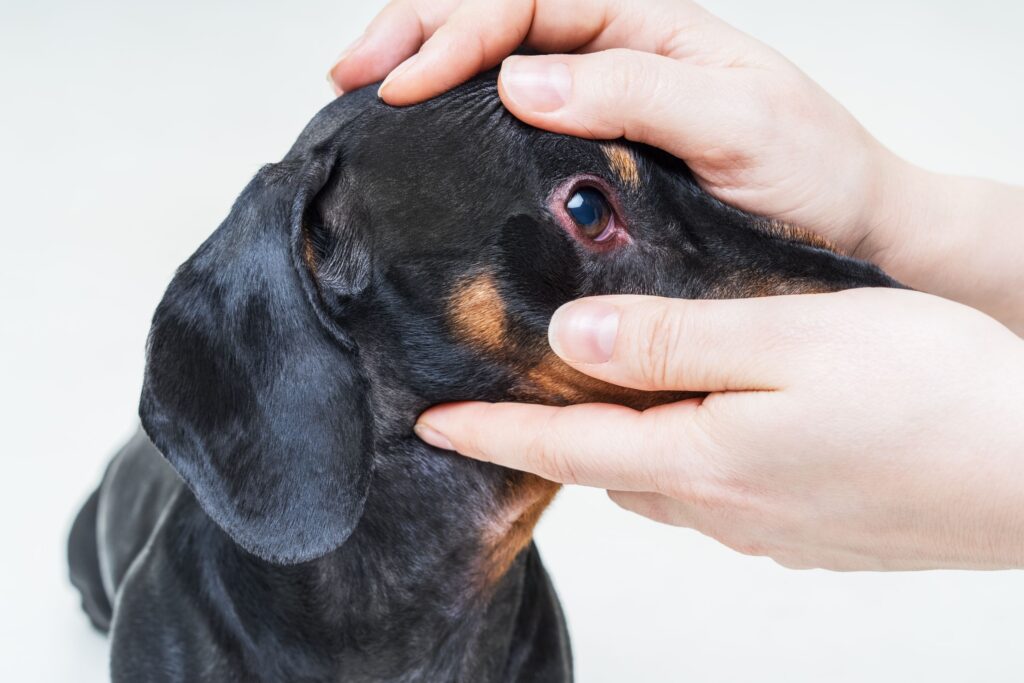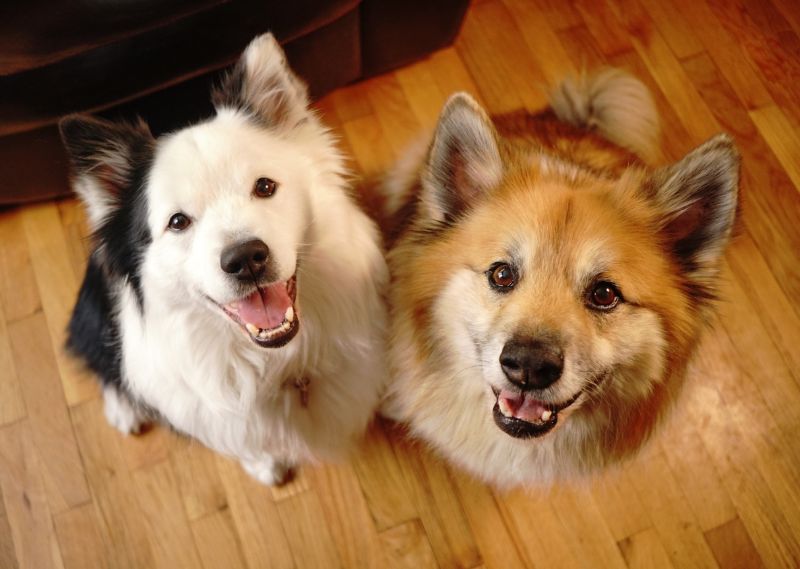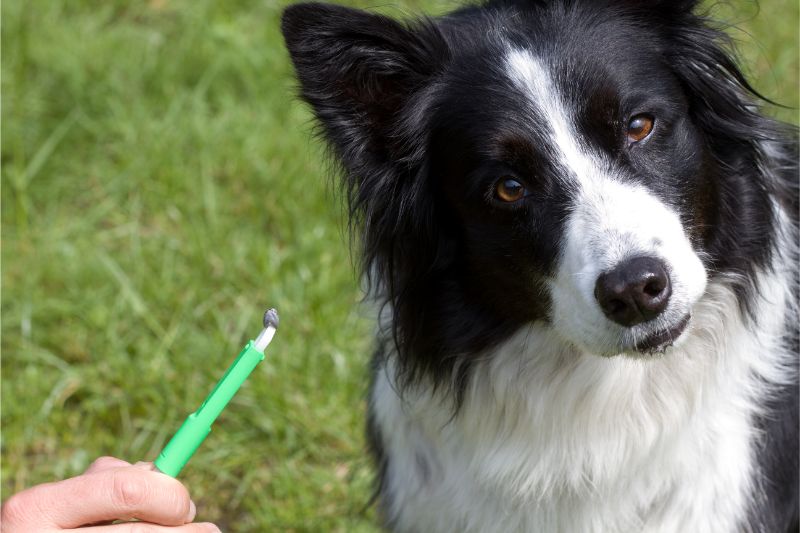Conjunctivitis (Pink Eye) in Dogs

Is your dog suddenly blinking a whole lot more than usual or experiencing discharge from her eyes? She may have conjunctivitis—more commonly known as pink eye. Conjunctivitis in dogs can affect one or both eyes. If your dog is struggling with symptoms of pink eye or an eye infection, the team at Shiloh Veterinary Hospital is just a phone call away.
Continue…Is Heartworm Disease In Dogs Really That Dangerous? Sadly, Yes.

It is absolutely reasonable to question every vaccination, medication, and preventive method recommended for your companion animal. Indeed, that’s the very essence of responsible pet ownership. Heartworm disease in dogs has the potential to cause severe lung disease, heart failure, organ damage, and can even be fatal. Together, we can ensure your dog has every possible protection against heartworm-carrying mosquitos and other parasites.
Continue…Is It Time to Grow Fruits and Vegetables for Your Dog?

We have a lot in common with our dogs, but chief among them is our mutual appreciation for food. We both love to munch, and enjoying treats together is one of life’s greatest joys. What could be better than growing tasty food in your own garden with the sole purpose of sharing your healthy haul with your best pal? If you’ve been wondering how you can make this work at home, we’ve got some tips on growing fruits and vegetables for your dog.
Continue…Double Trouble, Double the Fun: Adopting Two Dogs at Once

If you are like us, adopting one pet is pretty exciting. It’s an amazing feeling to bring home a deserving fur friend who needs our love, attention, and good care for a wonderful life. So, naturally, it would seem like adopting two dogs would be even better, right? After all, they will keep each other company. The more, the merrier!
There are some great benefits to adopting two dogs at once, but there are also some challenges. The team at Shiloh Veterinary Hospital is here to explain these reasons and to help you prepare for bringing home two amazing adoptable pets (while keeping it real!).
Continue…In the Know About Nuts: Can My Dog Eat Nuts?

Dogs, left to their own devices, will chow down on just about anything edible, whether it is good for them or not. Nuts, while seemingly healthy, can be potentially problematic for your pup. But it depends on the type of nut and the quantity. When we think something is tasty, we naturally want to give our best buddy the same thing.
There are some nuts that are fine for your pet and some that should be off limits. To give you an understanding, Shiloh Veterinary Hospital is here to answer the questions of, “Can my dog eat nuts and seeds?”
Continue…A Walk in the Park? Dog Park Etiquette and Safety Tips

In theory, dog parks seem like a nearly perfect place. Dogs can run off-leash while enjoying each other’s company and come home tired and happy – all while you’ve been relaxing and skipping the daily walk. Sounds like a great plan, but with so many dogs and people (most of whom are likely looking at their phones rather than watching their dogs), trouble can quickly arise.
Practicing good dog park etiquette is the key to safely enjoying the park, and making sure others do too.
Continue…Avoid a Crisis With Pet Parasite Prevention

No matter where we live, parasites are everywhere. These tiny facts of life can range from gross (discovering worms in your pet’s poop), to frustrating (a flea infestation in your home), to downright deadly (a pet diagnosed with heartworm).
Because fleas, ticks, heartworm, and intestinal parasites pose a risk to dogs, cats, exotic pets, and people all year long, pet parasite prevention is a critical part of your pet’s health care plan.
Continue…How Training and Socialization Lead to Good Dog Behavior

Even people with little to no experience with dogs can recognize the qualities of a “good dog.” They rarely bark or jump up on people, stay off of the furniture, and remember when it’s time to go outside for their bathroom needs. Likewise, “good dogs” don’t run away, chase after wildlife, and do not attack people and other animals.
We’d love to think that dogs are simply born this way, but the truth is, well-mannered dogs have been trained to behave in certain ways around very specific stimuli. Don’t worry—the keys to effective dog training and proper socialization are within reach.
Continue…